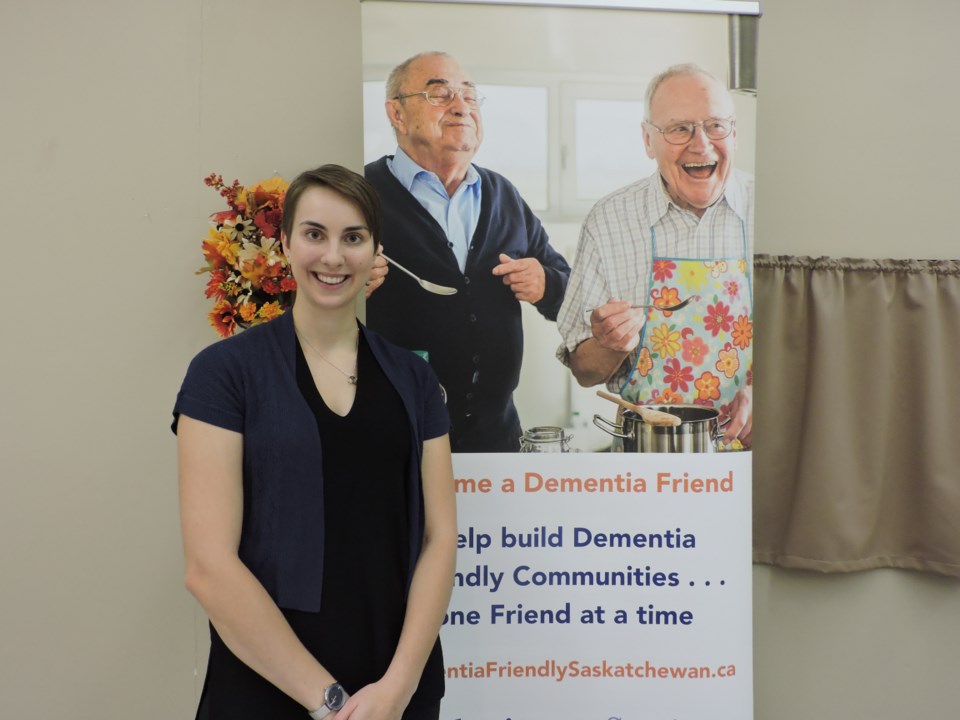January is Alzheimer's Awareness Month. In Saskatchewan, over 19,000 people are living with dementia, according to the Alzheimer Society of Saskatchewan. Because of this, the organization knows it is important to recognize the early signs of dementia, how to seek support and for family and close friends — how to provide that well-needed support system.
Abby Wolfe, public awareness coordinator for the Alzheimer Society of Saskatchewan, led the presentation earlier this fall during which she discussed dementia, the signs to look out for and how families and friends can provide support.
“We always encourage everyone to learn more about Alzheimer’s disease and dementia. Specifically, because we know that in our province, there’s over 19,000 people living with dementia, so that means there are even more people affected by it in terms of trying to support someone living with dementia, a friend or family member. Therefore, helping everybody to learn about it and how they can be more supportive, and inclusive and able to respond to people affected by dementia in person centred is important to us.
“I think it’s something important for businesses, families, employees and anyone who might have an interaction with someone who suffers from dementia throughout their day, to learn more about it. That’s the only way that they can be more supportive and responsive to them.”
Wolfe also clarified some misconceptions surrounding dementia.
“I think the most important thing that people need to know is that it doesn't just affect older people and not everyone over the age of 65 automatically develops dementia and not everyone that has dementia is older. People can be in their 40s and 50s and develop dementia. So, getting rid of that misconception that it only affects older people is probably the most important thing.
“Another misconception is that it only affects memory loss. There are actually many different changes; changes in abilities, behaviour and communication that can occur in addition to memory loss. So, not just assuming that dementia is only memory loss is really important too. Those are some of the biggest misconceptions out there about dementia.”
She says there are help centres across the province where people can access more information and resources on dementia.
“We have resource centres located in different areas of the province where we have offices with Alzheimer Society staff members. There is not a resource centre in Moose Jaw, but we do offer information and support through our dementia help line, toll free number, 1-877-949-4141 and we also have a variety of different support groups available that offer peer support. So, if people are looking for that kind of information, they can access that as well.”
Wolfe added that education and support provided by the Alzheimer’s Society is free of cost.
“Something else that I think is important for people to know is that the Alzheimer Society provides information, education, and support free of charge. Don’t be afraid to connect with us if you have a question. We can offer information on a variety of topics; like types of dementia and concerns that people living with dementia might have and we do that on an individualized basis, free of charge.”




